Dundee’s streets will today be punctuated by the sound of silence for the second time in 70 years following the death of a monarch.
The sudden death of King George VI in 1952 was received with profound sorrow.
The monarch, known to his family as Bertie, passed away peacefully in his sleep at Sandringham on February 6, aged 55, following a long illness.
Queen Elizabeth, his eldest daughter, was in Kenya when the news broke, standing in for her father on a long-planned international tour.
The death of King George VI carried the codename Operation Hyde Park Corner – and plans were quickly set in motion following the announcement of His Majesty’s death.
A national period of mourning was declared – including the closure of cinemas, cancellation of sporting events and the commencement of memorial services.
The city of Dundee sent the new Queen a message following the death of her father.
The Lord Provost spoke on behalf of the city, and said: “The citizens of Dundee have instructed me respectfully to offer Your Majesty and other members of the Royal Family their sincerest sympathy.
“Our beloved Sovereign is mourned by all.”
A large crowd gathered in Dundee’s city square on February 15 1952 to say a final goodbye to their King when his state funeral was held at Windsor.
Despite the significant footfall, you could hear a pin drop in what was usually one of the noisiest areas of the city.
Its usual hustle and bustle came to a halt when maroons cracked in the sky above the Law, the Howff and Broughty Ferry to signal the start of a two-minute silence.
Hats were doffed, heads were bowed and the gathering remained motionless.
Many lips moved in silent prayer.
Despite no words being spoken, it said everything about the expression of grief and how the city of Dundee would miss its sovereign.
Dundee stood still
A solemn hush had descended over the city.
Soon the crowd which had gathered in the City Square had spilled out onto neighbouring streets and pavement edges.
The city turned out in full force, and their smartest funeral attire, to pay their respects.
Buses and trams were brought to a stop when the power was turned off.
Passengers inside bowed their heads or stood by their chairs, or even alighted from the vehicles to join the mourners in the streets.
Those still in their homes drew the blinds as a mark of respect.
Several offices made late afternoon starts to allow staff to commemorate the funeral.
Dundee’s famous jute empire also came to a halt that memorable afternoon.
The jute works shut off all power just before 2pm.
The lights that were normally used to mark the beginning and end of their long shifts were used to book end the commemorative silence.
Workmen on outside jobs downed tools and joined the mark of respect.
Memorial services also took place across the city.
Dundee’s three City Churches were packed out for the solemn ceremonies which were attended by over 50 of the city’s organisations and public bodies.
The other 2,300 seats were filled by the public and left the streets outside packed with those who were unable to gain access.
Many simply had to watch the civic procession as it made its way from the City Chambers down to St Mary’s.
Inside the church, the service was taken by Reverend Hugh O’ Douglas and attended by the Lord Provost.
All were dressed in black for the service and many had added violets to their attire.
Reported in The Courier at the time, Reverend O’ Douglas spoke of the King’s humility, which was so admired by the people of Dundee.
The King’s greatness, he said, had nothing to do with his position – but his character.
Reverend O’ Douglas said: “It was one of his greatest achievements that King George VI was able to maintain the dignity of his kingly office without one trace of pride or pomposity.
“His concern was not with the mere trappings of kingship, but with doing his duty as King.”
The Reverend reflected on how much it had cost King George VI to ascend to the throne, and said what so many also believed – that doing so had shortened his life.
He continued: “As we remember, and as we feel the response which willing self-sacrifice wakens in every heart because it touches a universal chord, let us dedicate ourselves in love and loyalty to his daughter, our Queen.
“And let our love and loyalty ensure that her burden is not also made intolerable.”
Services in the Ferry and across Tayside and Fife were equally as well attended.
Memorial gatherings from Monifieth to Carnoustie and across the Tay into Newport gave all of Courier country the opportunity to pay their respects.
The local tributes to His Majesty did not end there.
The King George VI National Memorial Fund was a nationwide appeal for subscriptions to the late monarch.
Regional versions of the fund began to pop up across the country, and Scotland, including in Fife and Angus.
The Lord Provost set up a Dundee branch of the fund in November 1952.
The Lord Provost announced that every house in the city would be visited to collect for the fund.
Donations were received quickly, and willingly, with a total of £100 coming from the staff and pupils of Dundee High School alone.
An anonymous contribution of 5s was given by a pensioner from Arbroath, who made the donation “in memory of a wise King and a very perfect gentleman”.
By November 13, the Dundee fund had reached a total of £1,310.
A new age
On December 25 1952, the young Queen made her first Christmas broadcast.
She also gave permission for the Coronation – scheduled for June 1953 – to be televised.
For Britons, anticipation of the crowning of the Queen was something to lift spirits in austere times.
For many, it signalled the beginning of the end of their suffering from all the years previous.
The King’s fund was eventually closed in 1953 and Dundee’s contributions were sent to London, along with the rest of the country’s, for totalling.
Over half a million pounds had been raised by the country in the King’s memory.
Dundee’s dedication continued in March 1958 when the King George VI Memorial Club was founded in Lochee.
Opened by Princess Margaret, the club on Harefield Road was named “the most up to date in Scotland”.
It was branded as Dundee’s new “luxury club for old people”.
The main hall was designed to trap the sun, and electric underfloor heating ensured it was kept cosy at all times.
Any member could have a three course lunch each day, or a High tea on a Saturday, at a cost of 1s 3d per meal.
A TV set, piano, radiogram, and lots of games were gifted to the club by local organisations and residents.
The club also often held concerts in the afternoons, or on Saturday evenings.
During his relatively short, 15-year reign, George VI helped to hold Britain together during the most turbulent years of the 20th Century.
The lessons and values gained would shape the woman his daughter would become and the city will fall silent again today to give its thanks for her incredible reign.
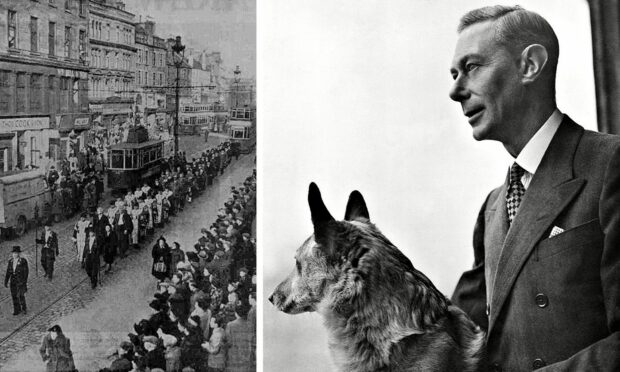
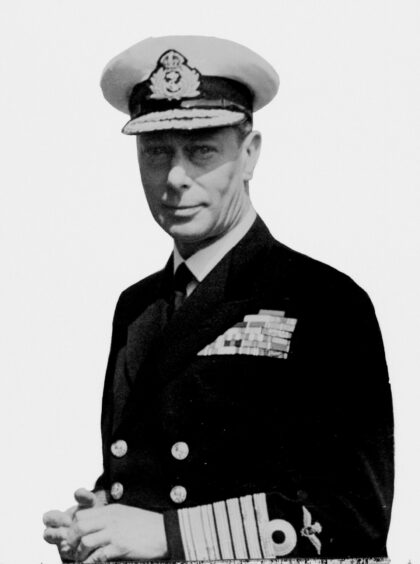
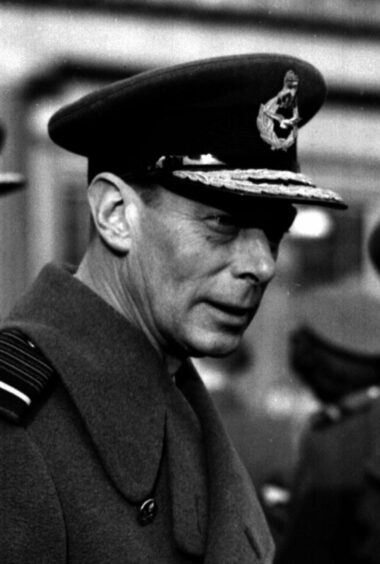
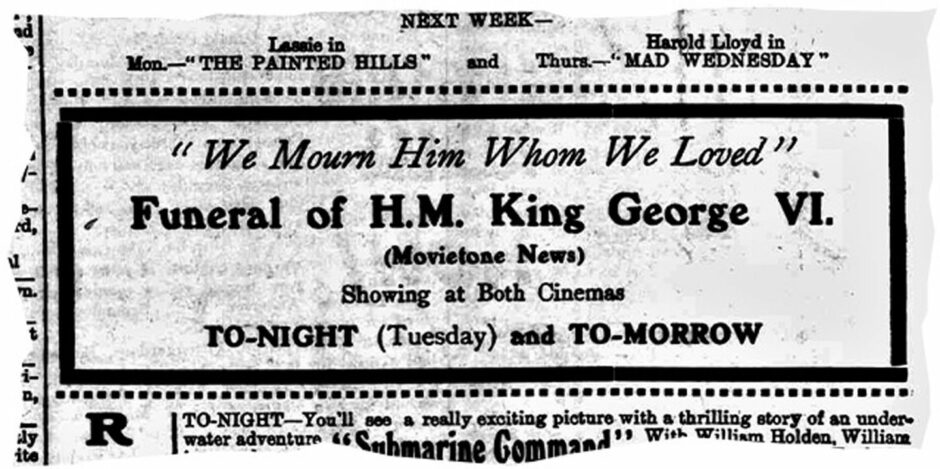
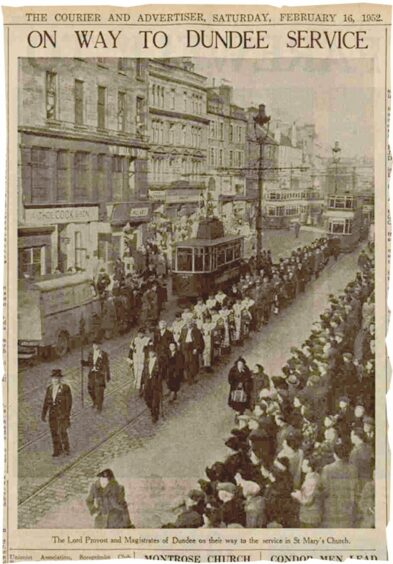
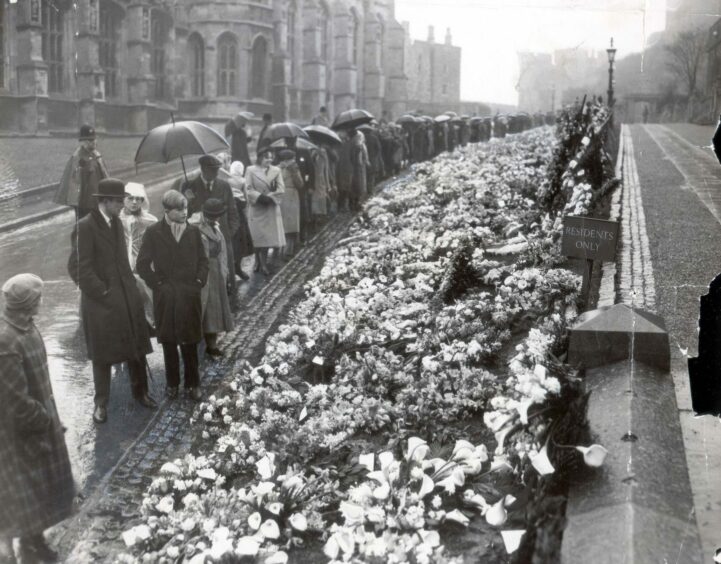
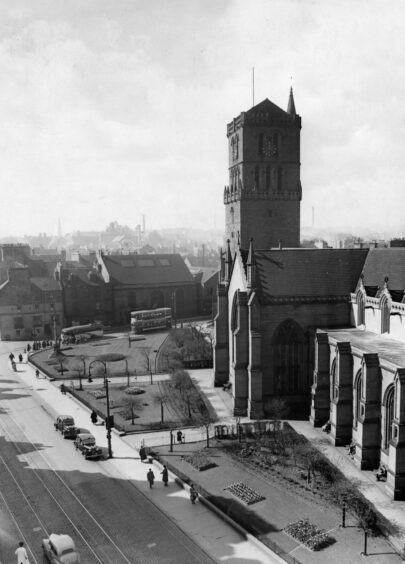
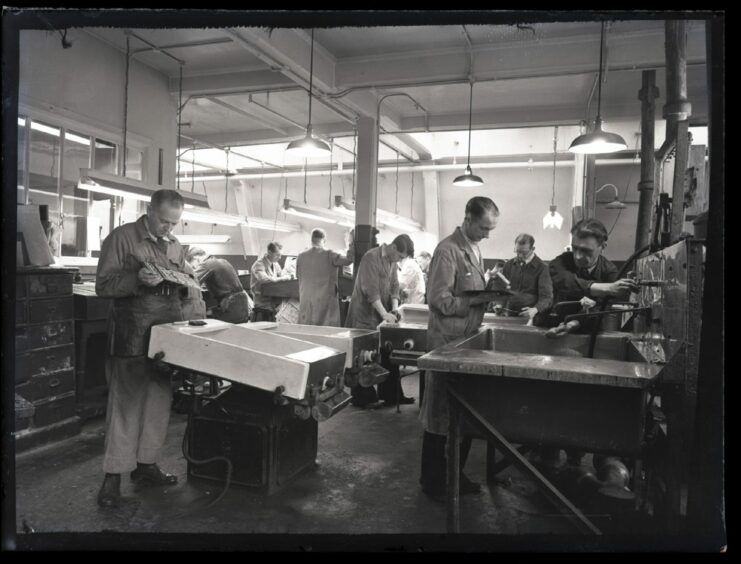
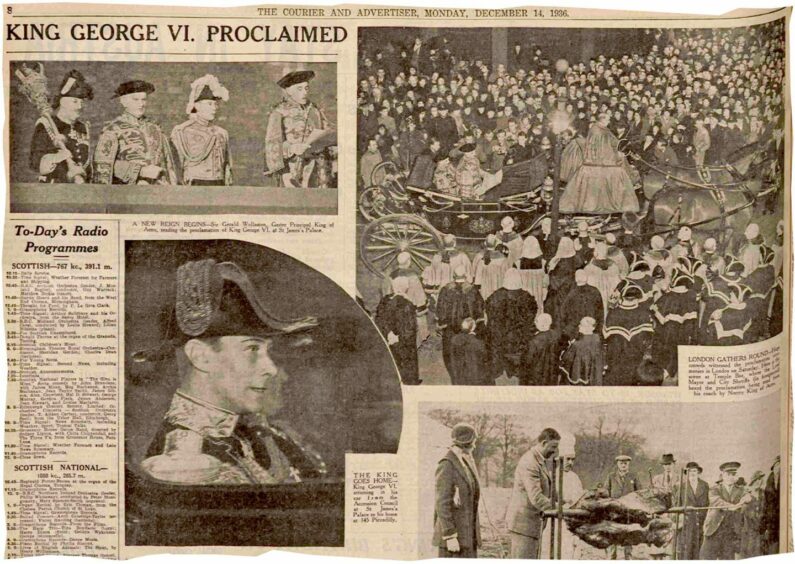
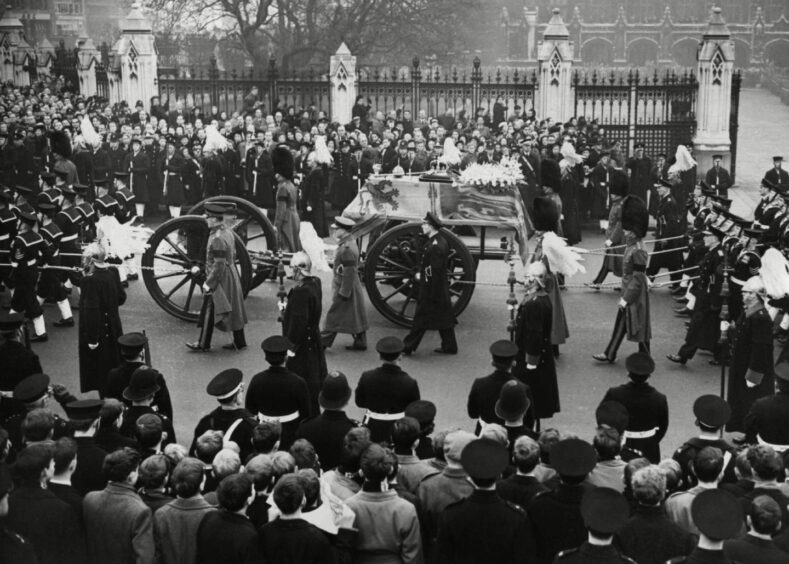
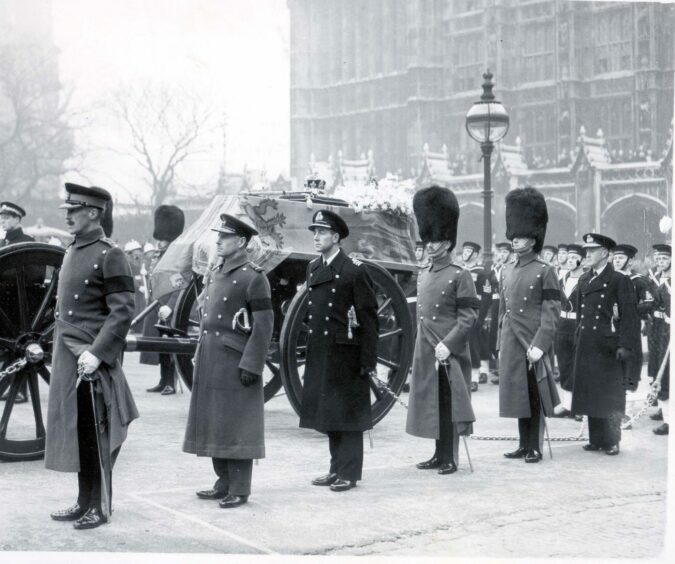
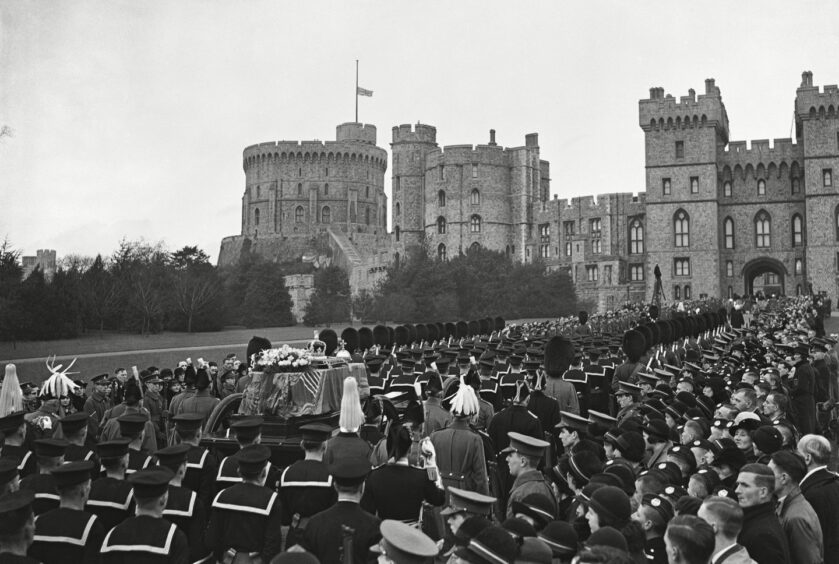
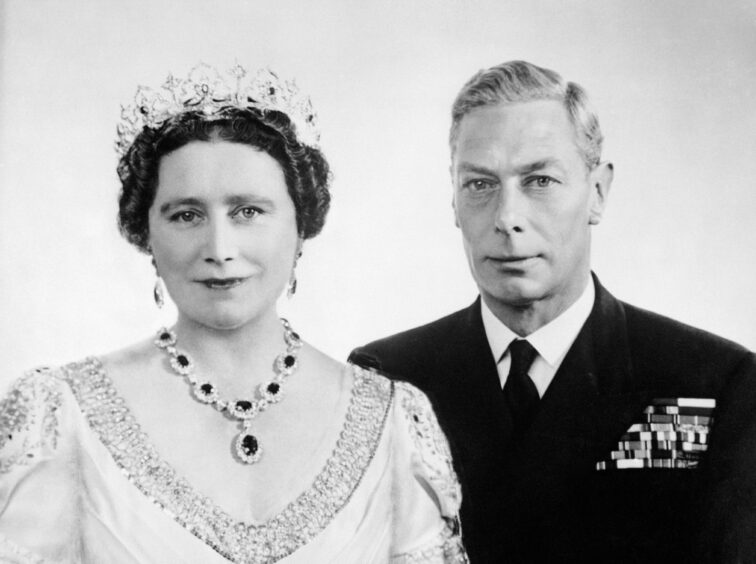
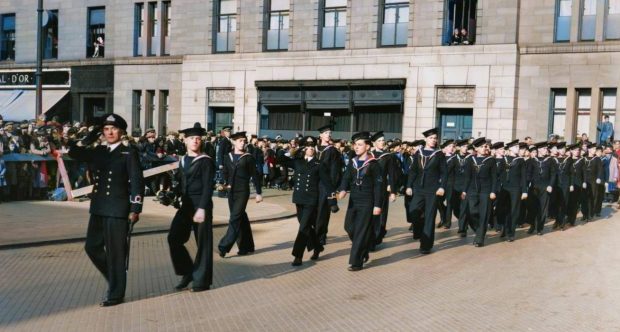
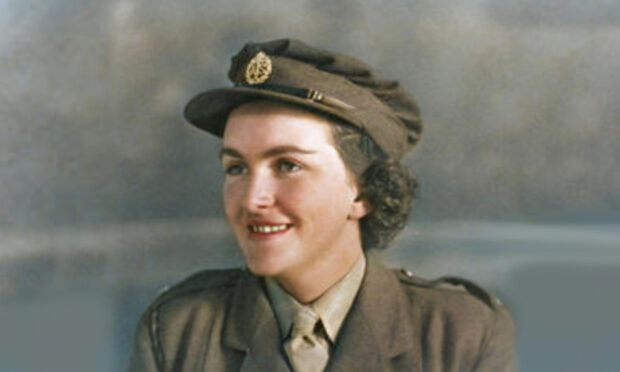


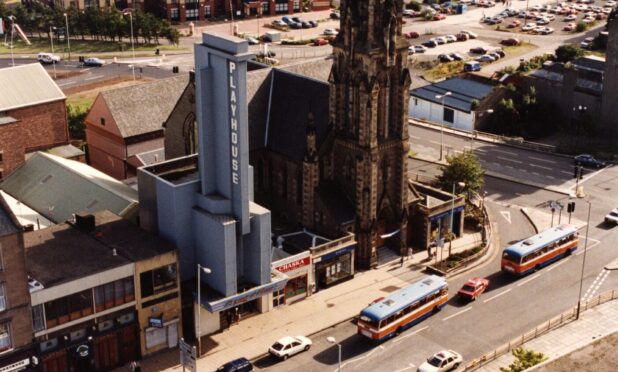
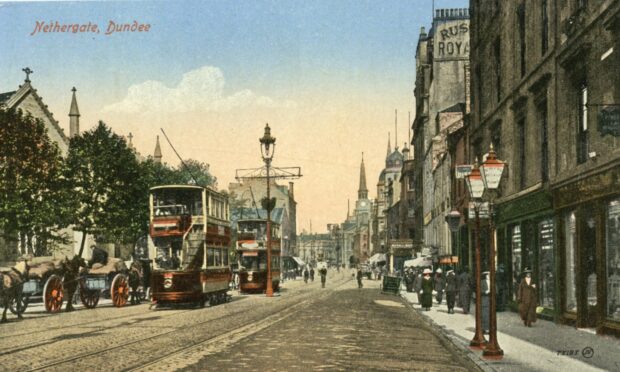




Conversation